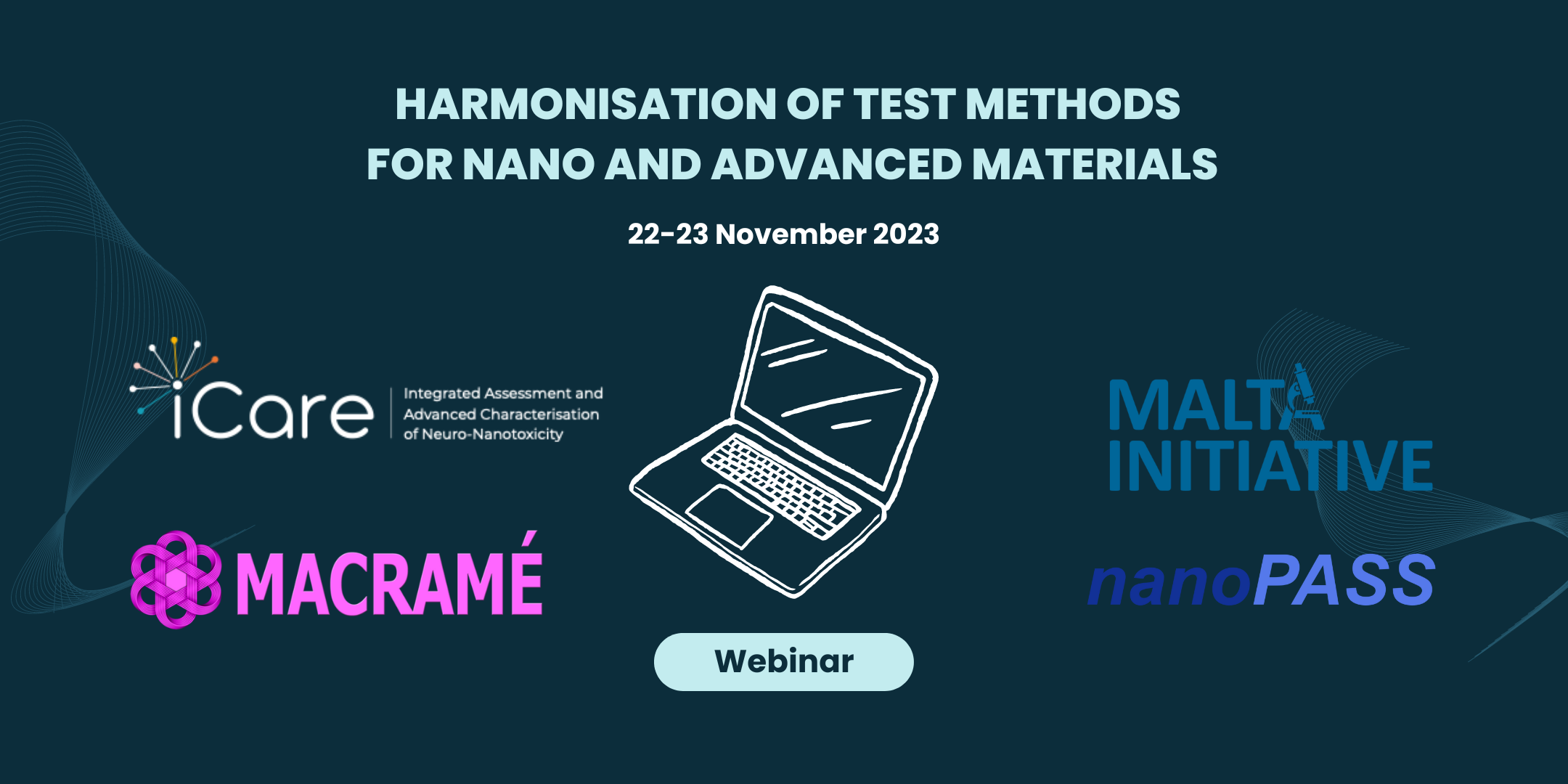United for Safety: The Successful Joint Workshop on Nanomaterial Test Harmonisation Spearheaded by nanoPASS and Partners
24 November 2023The scientific community took a significant leap towards the harmonisation of test methods for nano and advanced materials during a landmark webinar held on 22-23 November 2023. The event was a concerted effort by Horizon Europe projects iCare, MACRAMÉ, nanoPASS and in collaboration with the Malta Initiative, to continue the advancement of OECD Test Guideline (TG) development—a journey begun by NanoHarmony and NANOMET.
The workshop highlighted the nanoPASS project's central role in contributing to the weight of evidence for AOP302—Lung Surfactant Function Inhibition leading to reduced lung function—and its implications for safety and sustainability assessments. This work is crucial as nanomaterials continue to play an increasingly important role in various industries.
Over the two-day event, discussions delved into the ongoing developments of TGs for nanomaterials and explored the Malta Initiative's vision for future TG development within a European Test Method Strategy. Keynote speakers presented the latest strides towards harmonisation and standardisation of in vitro testing, emphasizing the need for these methods to be integrated into regulatory risk assessments seamlessly.
On the first day, Jorid Birkelund Sørli from NRCWE detailed the project's plans to support regulatory processes with robust scientific evidence. This highlighted nanoPASS's commitment to enhancing the technical quality of new approach methodologies (NAMs) and nanoecotoxicology tests, ensuring that future regulations are underpinned by reliable and consistent scientific data.
Day two focused on the challenges and regulatory frameworks surrounding graphene materials. The sessions included talks on the status of graphene regulations, interlaboratory studies, and strategies for characterising graphene in complex media. These discussions were crucial for setting the stage for future characterisation and test method developments for graphene.
The workshop closed with a round table, where presenters and participants discussed harmonisation and standardisation strategies to bridge in vitro models into regulation—a testament to the collaborative spirit of the event.
The outcomes of this workshop promise to have a lasting impact, driving forward the harmonisation of test methods and bolstering the safety assessments of nano and advanced materials for years to come.
